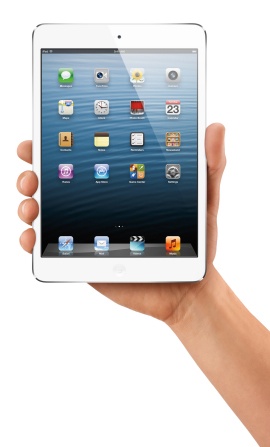Apple’s announcement of the iPad mini — and updates for iBooks 3 and iBooks Author — are as significant as Gutenbergs development of the printing press and will continue to change the way children of all ages learn around the world, Dallas publisher Donald Claxton said Thursday on Dallas talk radio station KLIF.
Claxton — whose company (www.claxtoncreative.com) has published a 179-page interactive book about the ancient Maya with a San Diego Mayan scholar, and is completing a children’s book entitled “There’s A Zombie In My Treehouse” — said the updates are real game changers as Apple pursues a strategy to get iPad technology into more and more classrooms worldwide.
With iBooks Author, which was released in late January, Apple has been able to change the way books are made with the inclusion of hours of video, 3-D animations, interactive graphs, charts and drawings, in-chapter quizzes and moreweve even argued that the word book is no longer applicable, Claxton said. With Tuesday’s developments, they’ve made changes to books as significant as Gutenbergs invention of the printing press itself, he adds.
With iBooks 3, users now have Social Media tools built into every book. A reader can highlight a portion of text and then instantly share it via Twitter, Facebook, Mail and Messages.
If you’re a student and you come to a portion where you’re confused or you want to ask a question, it’s now as simple as highlighting text in the book and, in a few clicks, sharing your question via a social media thread, Claxton said. This is going to be significant as classrooms across America continue to introduce this technology and capabilities to their students, he adds.
“It is fundamentally going to change the process of learning,” says Claxton. “Imagine if you were reading a chapter, didn’t understand something, and fired off an email to the author or your teacher asking them to explain it further. Thats now a reality. The hypothetical no longer exists.”
Claxton also said that Apple’s strategy to introduce the iPad mini wasn’t as much about being able to compete with Kindles and Nooks, but rather about being able to get more and more technology into cash-strapped school districts around the country and expand the reach of digital textbooks.



